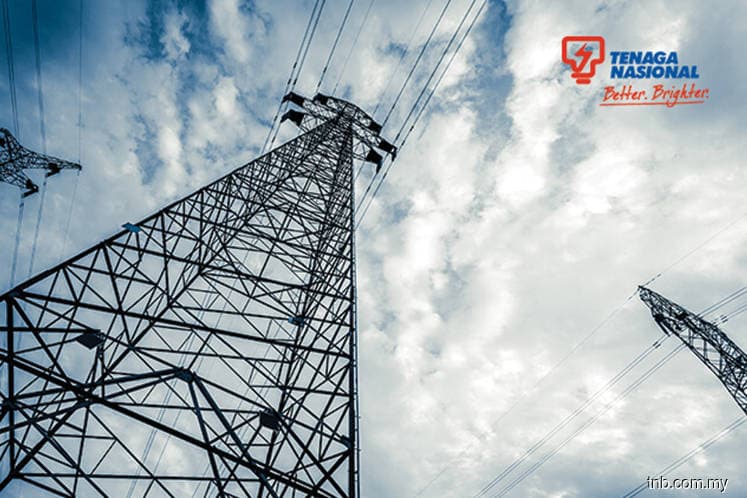
This article first appeared in The Edge Financial Daily on October 27, 2017
KUALA LUMPUR: Tenaga Nasional Bhd (TNB) reported a 2.4% decline in net profit for its fourth financial quarter ended Aug 31, 2017 (4QFY17) to RM1.72 billion from RM1.76 billion a year ago, due to an increase in operating expenses.
Earnings per share fell to 30.38 sen from 31.22 sen a year ago.
Quarterly revenue, however, grew 10.9% to RM12.46 billion in 4QFY17 from RM11.24 billion in 4QFY16.
The national utility also proposed a final dividend of 44 sen per share amounting to RM2.49 billion. The book closure and payment dates are to be announced later. This brings its total payout for the year to 61 sen per share or RM3.5 billion — a record-high annual dividend payout.
For its full FY17, TNB reported a 6.3% drop in net profit to RM6.9 billion from RM7.37 billion a year ago, mainly due to the increase in finance cost due to interest payable to the government on the Power Purchase Agreement Savings Fund as well as the accrued interest of sukuk programmes. The group also reported an increase in deferred taxation expense due to higher capitalisation of assets.
Revenue for FY17 came in 6.5% higher at RM47.42 billion, from RM44.53 billion in FY16.
In a statement yesterday, TNB chairman Tan Sri Leo Moggie said it has revised its dividend policy to a 30% to 60% dividend payout ratio of profit after tax and minority interests (Patmi).
“For FY17, the recommended total dividend payout is 50% of Patmi which almost doubled the dividend payout in FY16, marking the highest dividend payout thus far.
“We will continue to maximise shareholders’ value through consistent and sustainable dividend payout. This RM3.5 billion dividend [payout] would not just directly benefit TNB shareholders such as EPF [Employees Provident Fund], Permodalan Nasional Bhd, Kumpulan Wang Persaraan (Diperbadankan) and Lembaga Tabung Haji. More importantly, it will also enrich the rakyat as the account holders of these institutions,” he said.
TNB president and chief executive officer Datuk Seri Azman Mohd said TNB is continuously spending a considerable amount of capital expenditure (capex) to ensure safe, reliable and efficient supply of electricity.
“Accordingly, our interruption index has dropped substantially from 64.2 minutes per customer in 2013 to 50.2 minutes per customer this year, indicating significant improvement in reliability, on par with other developed countries,” he said.
TNB’s FY17 capex amounted to RM12.06 billion compared with RM11.39 billion in FY16 and RM10.77 billion in FY15.
A total of RM5.4 billion of its FY17 capex was from two generation projects totalling 3,000mw. Of the two, Janamanjung 5 with 1,000mw capacity was successfully commissioned on Sep 28, 2017.
The group said the capex investments were made to ensure adequacy in the reserve margin in line with the country’s aim to become a high-income country post 2020. The investments strengthened TNB’s balance sheet with total group asset base increasing to RM142.01 billion as at Aug 31, 2017.
Azman added that since the implementation of the Incentive Based Regulation mechanism in January 2014 by the government, TNB’s earnings from the regulated business have achieved greater certainty.
On Nov 30 last year, TNB’s board approved the change of the financial year end of the group and company from Aug 31 to Dec 31, which shall be implemented after the close of its FY17.
TNB shares closed unchanged at RM14.34 yesterday, with a market capitalisation of RM81 billion.